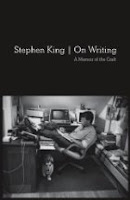
Buzz: A Year of Paying Attention
By Katherine Ellison
2010
Voice
282 pages
In Buzz: A Year of Paying Attention, investigative reporter Katherine Ellison commits a year of her life to learning more about ADHD and to figuring out how to best help her son, who suffers from the disorder and whom she has given the pseudonym "Buzz" for the purposes of the book.
Now I have to say here that I am completely over the gimmick "a year of _______" as a device for getting oneself a book deal. It was creative, perhaps, at one point in the past, but now it is done. (Unless I can come up with something to do for a year and get a nice book deal. Other Years: A Year of Reading "A Year of" Books by Maggie Reid Schneider.)
That being said, Ellison's project here is somewhat less gimmicky than the rest. She's not plowing through a cookbook or randomly adopting ancient customs. Instead, she appears to be making a commitment to do something that is completely NECESSARY for the life of her family. And good for her for being able to recognize that and put some other things aside to be able to do it. Of course, I do believe that when one makes a decision to become a parent, one make a commitment to spending a lifetime paying attention to what your child needs from you, or at least a couple of decades. In part, what distinguishes Ellison from some other parents taking on this mighty struggle is a more flexible career path and a well padded checkbook. Still, her work here might be a particularly good resource for other parents struggling with some of these issues.
I think that this book might be particularly helpful, because Buzz seems a good example of a child that is severely affected by ADD. He is not an ambiguous case. Buzz is suffering; Buzz's whole family is suffering. In creating an honest portrayal of her challenges with her son, Ellison paints a picture that I think will be both convincing to some that question the validity of ADD as a real diagnosis, and helpful to some parents that are unsure if their child really fits the bill. ADD is, unfortunately, both under and over treated. There are some children that get slapped with the label that probably just need more recess time and a smaller classroom but instead get stimulants, and there are others that are clearly mightily struggling, and though they need help desperately, they get only detentions. In this book we see a clear picture of a child with a real and crippling problem, and thankfully, learn about some of the ways to help him.
Ellison also does well to turn her eye as an investigative reporter on the treatments, tests and organizations that she encounters on her journey. Her writing about their decisions about which tests and treatments to try and which to forgo is particularly compelling because is able to come at these encounters from both ways: as a parent desperate for answers and as a reporter looking to paint a balanced and accurate picture. In doing so, she skips some thing that have been suggested as miracle treatments, and chooses to do some that are not entirely proven. Her honest reflection on the challenges facing a parent in a world where few of the tests and treatments are validated and almost all are very expensive is an interesting read.
I did struggle with Ellison's waffling about her own diagnosis. She has also been diagnosed with ADD, and while perhaps that is part of her problem, I agree with the later assessments that anxiety seems to be her central issue. She is a worrier, and while her concerns about the fate of her children are central to the theme of the book, her concerns about global warming and plastic pollution and the end of the world are reiterated a little too often for my taste.
Overall, Buzz is an interesting read, if not for everyone. It's certainly worthwhile for parents that are struggling with attention issues in their own children, and probably for adults that have been lead to wonder if they might have "adult ADD" themselves. It's probably also worthwhile for educators and those of us, myself included, with an academic interest in attention. It would likely be useful for some people who are unsure if they "believe in ADD," although I suppose those that need it for that purpose are unlikely to pick it up. Overall though, I'm not sure that this is a story that would be compelling to the general reader, so unless you have a specific interest, you could likely give it a pass.
Full Disclosure: I received my copy of this book for free through the Early Reviewers program at LibraryThing.






